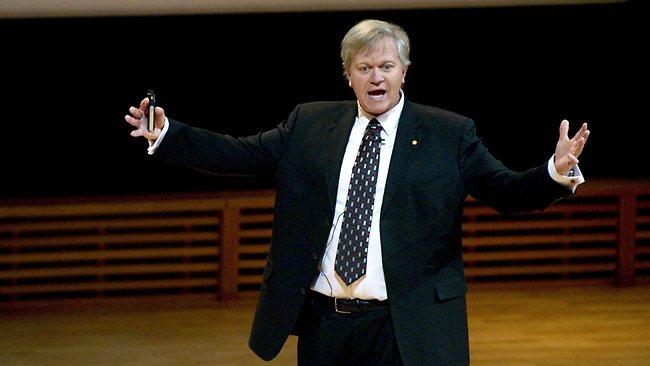Disgust at lag in funding results
NOBEL Prize-winning astronomer Brian Schmidt has blasted bureaucratic delays in the announcement of this year's Future Fellowship winners.

NOBEL Prize-winning astronomer Brian Schmidt has blasted bureaucratic delays in the announcement of this year's Future Fellowship winners.
He said he was "disgusted" researchers now had to spend weeks applying for next year's round simply because they did not know whether they had won a 2013 fellowship.
"This is pretty ugly. People are pretty disgusted by the way we do business here and so am I," Professor Schmidt told the HES. "It really comes down to the non-strategic way we treat science policy in this country."
The delay partly stems from the previous Labor government's "pause" on research grants last year, but has been compounded by September's federal election and the change in government. As well, the Abbott government has required that all discretionary grants be approved by the Finance Ministry as part of its budget stocktake.
Applications for the 2014 round of Future Fellows close on November 20. Research offices at universities have already asked researchers to put in their applications weeks ahead of that deadline. About 200 fellowships will be awarded in the 2013 round, meaning that up to 200 researchers may have wasted their time applying for 2014.
"These are voluminous applications that take a lot of time and it is the best people that are going to have to be spending 10 per cent of their time (4-6 weeks) applying for grants that they have already been awarded," Professor Schmidt said.
Applicants told the HES that simply "tweaking" an application would require about two-three weeks work and many would be doing more than that. An application can take up to six weeks' work, involving about 50 pages of compliance material and a 5500-word description.
Jodie Bradby, a senior research fellow at the Australian National University's school of physics and engineering, who applied for the 2013 round, is trying to put off a 2014 application as long as possible. "The things that get eroded are your family time and time spent writing up your research," she said.
"The frustrating thing is that the delay is affecting those who will be successful, so we are wasting the time of the top people."
Education Minister Christopher Pyne said an announcement on the outcome of the 2013 round would come in the near future: "With an election, the caretaker period and a change of government, it is unsurprising that there may be a backlog on the approval of various grants."
Australian Research Council chief Aidan Byrne acknowledged the difficulty. He said the deadline for applications for the 2014 round could not be extended because the timing of payments was "tightly prescribed".
Future Fellowships are aimed at supporting mid-career researchers. They fund about 200 new fellows a year over four years at a salary of up to about $158,000.
The 2013 round was due to be the last round until Labor this year decided to extend the scheme to 2014, but cut it back to 150 fellowships.
With the scheme set to end, there were more than 1000 applications for the 2013 round, up from about 600 in 2012.
And there are expectations that the final, 2014, round will attract upwards of 1200 applicants, further reducing the success rate.
Professor Byrne said it was critical that the government continue to fund fellowships for mid-career researchers.
He said he would make the case for such a scheme to Mr Pyne and his higher education adviser, Don Markwell. A spokesman for Mr Pyne said: "The continuation of programs or new initiatives will be determined through the normal budgetary processes between now and the May budget."



